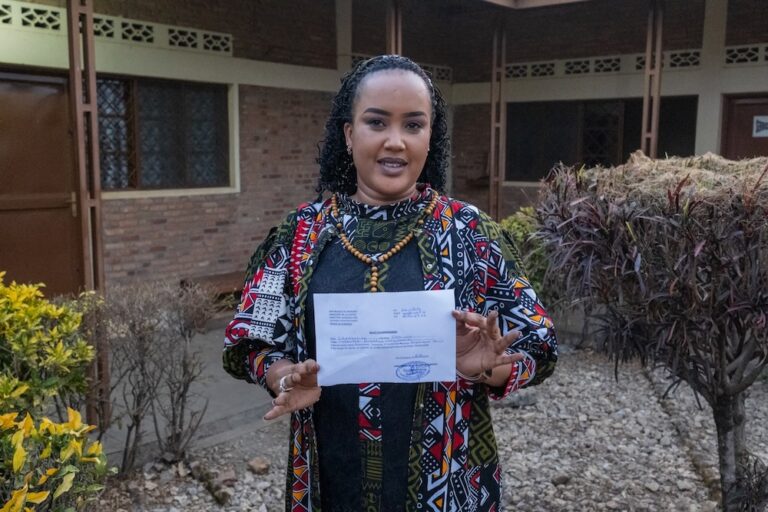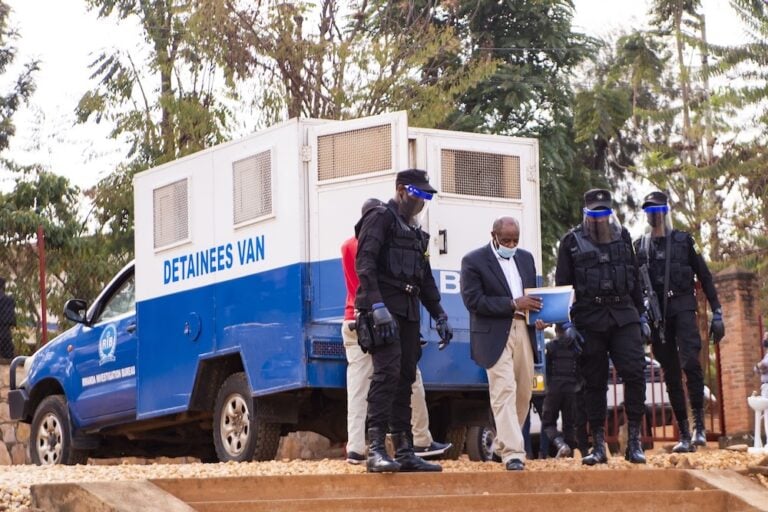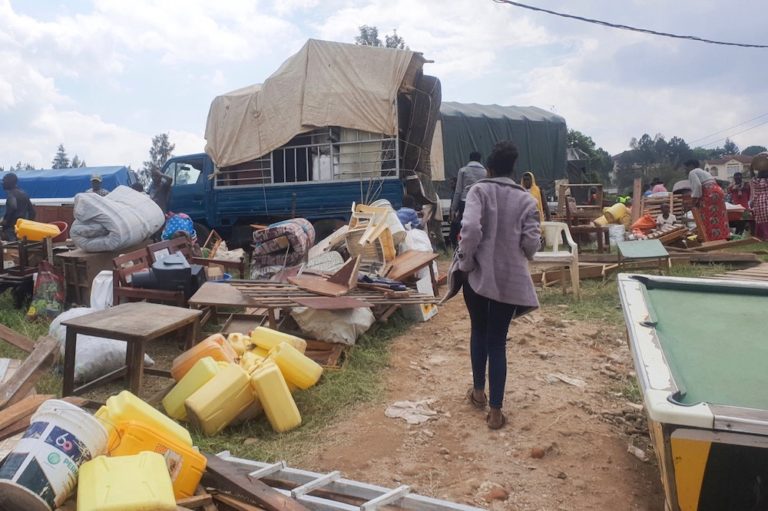(RSF/IFEX) – Reporters Without Borders is deeply disturbed by the increasingly fraught climate for the press in Rwanda, in particular the expulsion of three newspaper editors from a 2 May 2008 ceremony marking World Press Freedom Day on the orders of the new information minister, Louise Mushikiwabo. “Nowhere else in Africa does a government display […]
(RSF/IFEX) – Reporters Without Borders is deeply disturbed by the increasingly fraught climate for the press in Rwanda, in particular the expulsion of three newspaper editors from a 2 May 2008 ceremony marking World Press Freedom Day on the orders of the new information minister, Louise Mushikiwabo.
“Nowhere else in Africa does a government display this degree of contempt and aggressiveness towards journalists,” the press freedom organisation said. “This latest incident highlights the government’s inability to tolerate dissent or criticism, whether moderate or radical. The information minister should think twice about launching into such an unequal battle against the press, which the government will easily win.
In the course of the 2 May ceremony at Kigali’s Hotel Serena, the new information minister asked her assistant, Aimable Semukanya, to ensure that Charles Kabonero, editor of the weekly “Umuseso”, Jean-Gualbert Burasa, editor of the fortnightly “Rushyashya”, and Jean-Bosco Gasasira, editor of the fortnightly “Umuvugizi”, were removed.
The three journalists were firmly asked to leave the room although Roland Amoussouga, the spokesman of the International Criminal Tribunal for Rwanda (ICTR), was about to begin a presentation on the subject of “Press freedom, limits and responsibilities.” The three had attended the event’s morning sessions and had lunched with their colleagues.
Explaining their removal, the information minister said they had not been invited and that she intended to exclude these “negativist” newspapers from all governmental activities.
Another recent example of the dangerous climate of hatred was a comment by Théodore Simburudali, the president of Ibuka (Remember), a pro-government organisation dedicated to keeping alive memories of the genocide. Speaking on 14 April, Simburudali criticised journalists working for the BBC and VOA who were “genocide deniers or even genocide supporters.”
Without naming them, he said a list of journalists “who should be fired from their jobs” would be provided to the US embassy in Kigali, where a ceremony was being held in honour of Rwandan employees killed during the genocide of April-July 1994.
Reporters Without Borders has been told that the journalists to whom Simburudali was alluding are Ally Yusuf Mugenzi, head of the BBC’s “Great Lakes” service, Etienne Karekezi, VOA’s Central African editor, and Thomas Kamilindi, the BBC’s former Kigali correspondent, who now works for VOA.
Reporters Without Borders condemns these comments and threats as baseless and disgraceful as these journalists are above suspicion and some of them lost children during the genocide.
Almost immediately after being named information minister, Mushikiwabo declared Ugandan journalist Robert Mukombozi, correspondent for the Kampala-based “Daily Mirror” newspaper, persona non grata for “unobjective reporting” and “distorting the facts.”
In 2007, Mukombozi was briefly detained by the intelligence services and was fired from the Rwandan pro-governmental newspaper “The New Times” over a report that was damaging for relations between Rwanda and Uganda.


